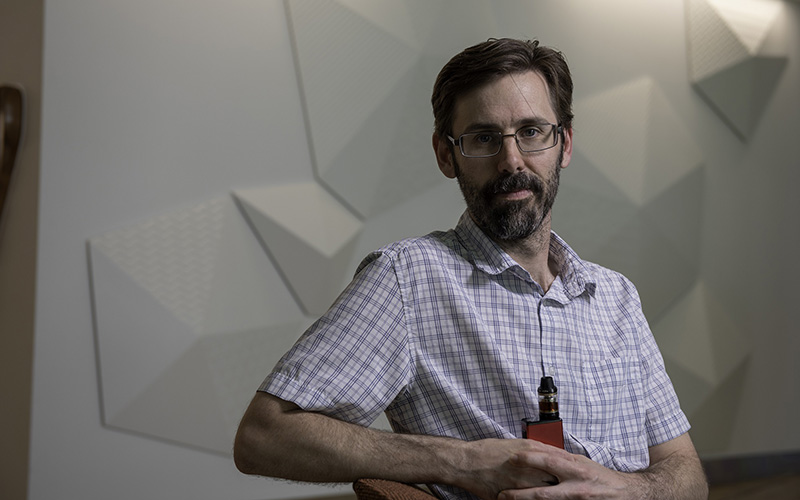Search
Research
Association between early respiratory viral infections and structural lung disease in infants with cystic fibrosisInfants with cystic fibrosis (CF) develop structural lung disease early in life, and viral infections are associated with progressive lung disease. We hypothesized that the presence of respiratory viruses would be associated with structural lung disease on computed tomography (CT) of the chest in infants with CF.
Research
Comparison of home ambulatory type 2 polysomnography with a portable monitoring device and in-laboratory type 1 polysomnography for the diagnosis of obstructive sleep apnea in childrenTo compare type 2 polysomnography (T2PSG) to the gold standard type 1 in-laboratory polysomnography (T1PSG) for diagnosing obstructive sleep apnea (OSA) in children; validate home T2PSG in children with suspected OSA.

News & Events
Toxic, harmful chemicals found in popular Australian e-liquidsPerth researchers have found toxic and harmful chemicals in several dozen e-cigarette liquids readily available in Australia.
Research
Minimal structural lung disease in early life represents significant pathologyIn this cohort, as compared with the AREST CF cohort, the authors highlight the limited correlation between infection and inflammation with lung function and structural impairment, and that this was mainly explained by the mild changes identified in lung function and on chest CT scan.
Research
The potential of antisense oligonucleotide therapies for inherited childhood lung diseasesAntisense oligonucleotides are an emerging therapeutic option to treat diseases with known genetic origin. In the age of personalised medicines, antisense oligonucleotides can sometimes be designed to target and bypass or overcome a patient's genetic mutation, in particular those lesions that compromise normal pre-mRNA processing. Antisense oligonucleotides can alter gene expression through a variety of mechanisms as determined by the chemistry and antisense oligomer design.
